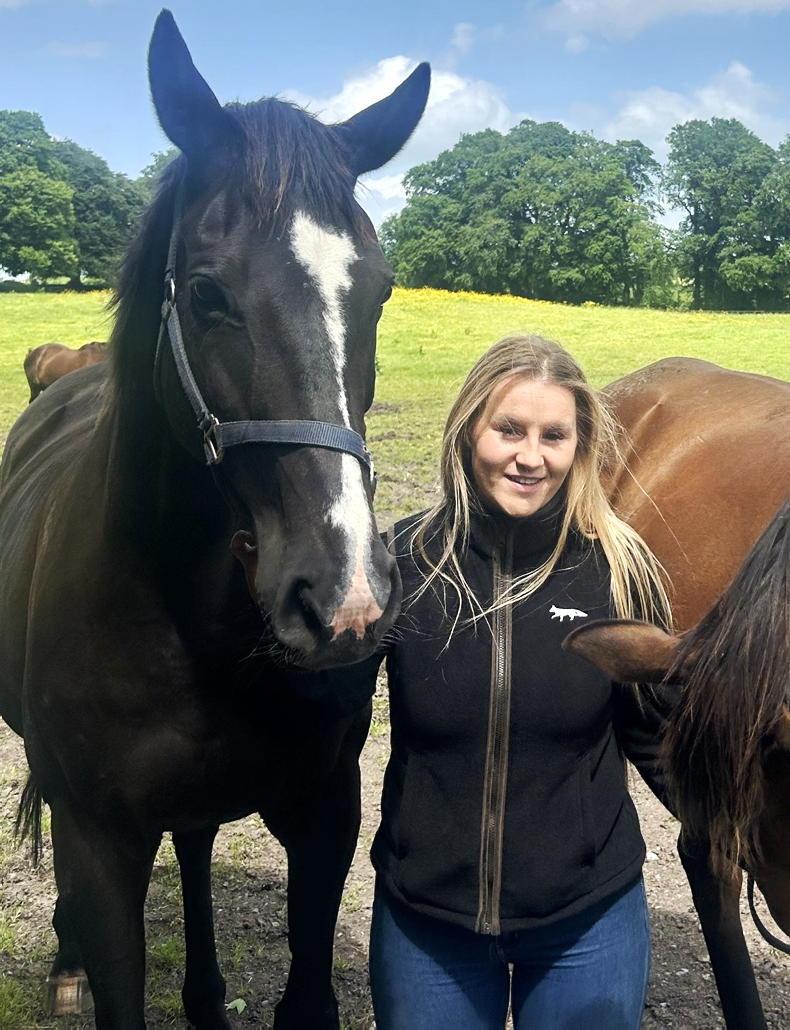How did you get involved in the bloodstock/breeding industry?
Growing up on a farm, I was always surrounded by animals. My dad kept one or two National Hunt horses, so there always were a few horses on the farm. I think I was 10 when I got my first pony, although it felt like a lifetime to wait. I was a member of the Carlow Hunt and the Carlow Pony Club growing up, both taught me huge amounts about horsemanship.
My dad bred his first National Hunt horse when I was quite young and she produced 3 winners from four runners, one of which we kept and had in training with Mark Fahey and later bred from. Growing up I loved everything about breeding, I think I even used to get a day off school to bring a mare for a cover. It was all a novelty and it just progressed from there.
I worked in Gilltown Stud during college. It was my first time working in such a large breeding operation and it exposed me to so many different things early in my career.
Who helped you along the way or gave you advice?
I spent three years in CAFRE Enniskillen where I got my BSc Hons Degree in Equine Management. The course really opened my eyes to the opportunities within the bloodstock industry both in Ireland and abroad. The staff there are really good at introducing students to industry professionals during talks and seminars.
I spent a season prepping yearlings and working sales for Newgate Farm in Australia. The team out there are second to none, it was invaluable to spend time under Henry Field and Jim Carey. Rachel Safir, assistant stud manager, in particular gave me lots of advice.
I currently work in Clare Manning’s Boherguy Stud. I am always learning from Clare. She is extremely generous with her time and knowledge and has taught me so much. I’m very fortunate to work under someone who has had great success in the short time they have been consigning horses at the sales.
What challenges/problems have you faced so far?
Along with my boyfriend Stephen Keogh, we hope to offer some yearlings for sale this year for the first time under Raheendaw Farm.
Starting out a new venture like this, however big or small, is daunting. You have to do the best with what you have. We’re limited with facilities at home. While we do have the basics, we hope to keep improving year on year, so we can produce the best quality horses who then go on to be successful on the racecourse.
What advice would you give to somebody else who wanted to get involved in the industry professionally?
Hard work pays off. If you put your all into what you do, whatever the job, people will notice. It’s a fickle industry and you should always put your best foot forward.
Whatever aspect of the industry you are interested in, there are people who are willing to help you, you have to put yourself in a position to learn from them.
What are your hopes for the next 12 months?
We’re not far from the start of yearling prep. It’s always a busy time in work and this year we will have a few at home as well. I hope we’ll have a successful season and I’m looking forward to working with lots of nice horses and continuing to meet new people.
After the sales season I hope to continue to travel and spend some time working in Kentucky to gain experience in another part of the industry.


 This is a subscriber-only article
This is a subscriber-only article
 It looks like you're browsing in private mode
It looks like you're browsing in private mode









SHARING OPTIONS: